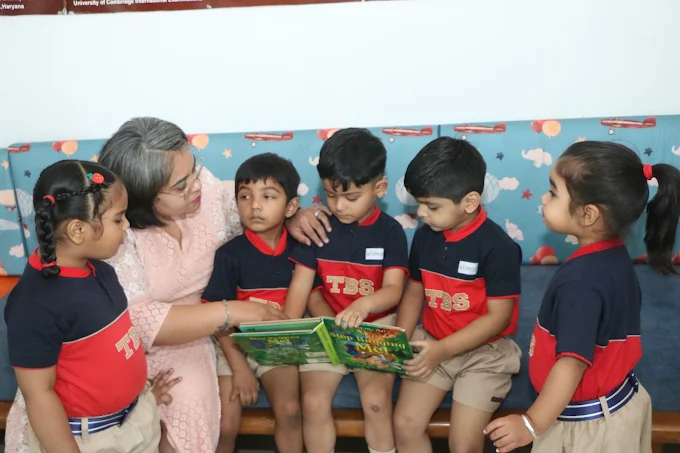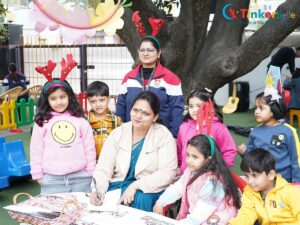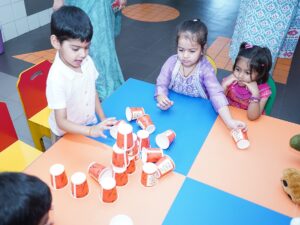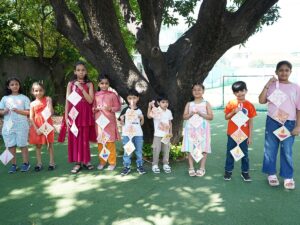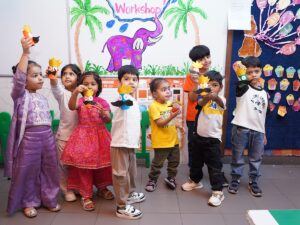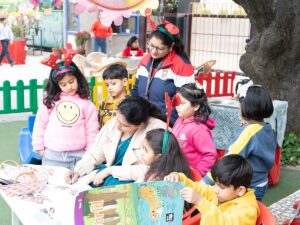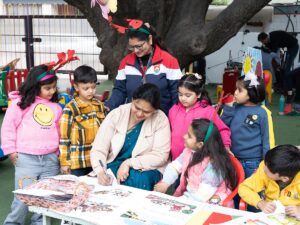When it comes to education, many parents tend to focus on primary and secondary schooling. But the truth is, the learning journey begins long before that. The early years of a child’s life—especially from birth to age six—are crucial for brain development, behavior, and lifelong success. At Tinkerbelle, a leading Play School in Panchkula, we strongly believe that Early Childhood Education provides the essential foundation for every child’s future.
During these years, children absorb everything around them like a sponge. From learning to walk and talk to expressing emotions and solving small problems, this phase shapes their personality and abilities. That’s why the Importance of Early Education cannot be overlooked. In addition to boosting academic readiness, it also helps develop emotional strength, creativity, and Social Skills in Preschool settings.
The Power of the First Five Years
Did you know that 90% of a child’s brain develops before the age of five? These early years are a window of opportunity for developing language, motor skills, critical thinking, and empathy. At Tinkerbelle, we use this window to offer rich, engaging experiences that stimulate a child’s mind and body.
Through storytelling, music, play, and interaction, children gain exposure to multiple learning forms. More than just ABCs and 123s, they learn how to express themselves, make decisions, and engage with the world around them.
Our curriculum is designed to offer early learning benefits in every area—cognitive, social, physical, and emotional—giving each child a strong start in life.
Social Skills in Preschool: A Lifelong Advantage
One of the biggest advantages of early schooling is the development of Social Skills in Preschool. For most children, preschool is the first environment where they learn to interact in a group setting. They experience cooperation, turn-taking, teamwork, and empathy—all under the guidance of trained educators.
At Tinkerbelle, we create opportunities for children to work in small groups, share resources, and solve simple problems together. These interactions help them understand feelings, manage emotions, and communicate more effectively.
Children who build social skills in playschool often grow up to be more confident, cooperative, and emotionally intelligent. They’re able to handle transitions, adapt to new environments, and develop healthy relationships—skills that are just as important as academic achievement.
A Balanced Approach to Child Development
Early Childhood Education is not just about preparing kids for primary school. It’s about helping the “whole child” grow—mentally, physically, socially, and emotionally. Our learning approach includes:
- Creative Arts: Drawing, music, storytelling
- Physical Play: Outdoor games, yoga, motor-skill activities
- Cognitive Play: Puzzles, matching, counting, sequencing
- Sensory Play: Sand, water, and texture-based activities
- Circle Time: Group discussions and role-play
Each of these activities helps children become more self-aware, empathetic, and emotionally expressive. These are essential life skills that allow them to thrive beyond the classroom.
The Importance of Early Education in Today’s World
We live in a fast-moving world where adaptability, communication, and emotional intelligence are key. The Importance of Early Education is greater than ever. In the early years, children not only learn basic academics but also develop the mindset and personality that will shape their adulthood.
Preschools like Tinkerbelle teach children how to ask questions, think critically, and develop opinions—all while enjoying the learning process. Our child-friendly infrastructure, expert faculty, and activity-based curriculum ensure that every child feels safe, valued, and supported.
Developing Social, Emotional & Communication Skills
Communication and emotional regulation are skills children develop by observing, practicing, and interacting. Preschool offers the perfect platform to encourage these capabilities.
Our trained teachers at Tinkerbelle ensure that children feel comfortable expressing themselves. Through classroom games, storytelling, and collaborative tasks, children grow more socially aware and emotionally balanced.
This is why Social Skills in Preschool are considered one of the strongest predictors of later life success. They build the confidence to speak up, the patience to listen, and the empathy to care—all of which are essential in school, work, and relationships.
Learning Through Play and Exploration
One of the key early learning benefits is that children learn best through play. Instead of traditional lecture-style methods, we promote hands-on, discovery-based learning. Our activity-based approach includes storytelling corners, block play, movement games, nature walks, and arts & crafts.
This learning style not only improves cognitive development but also keeps children excited and engaged. It transforms school into a place of joy rather than pressure—encouraging curiosity and love for learning.
Role of Teachers and Parents
In Early Childhood Education, the support system around the child matters as much as the content. That’s why we value a strong partnership between teachers and parents. We keep communication open through regular parent-teacher meetings, progress updates, and event participation.
Our educators are trained in early childhood development and know how to identify individual learning styles and needs. Every child is encouraged to grow at their own pace with warmth, respect, and guidance.
Conclusion: A Foundation That Lasts a Lifetime
In conclusion, Early Childhood Education is one of the most valuable investments you can make in your child’s future. It doesn’t just prepare children for school—it shapes their entire outlook toward learning, relationships, and life itself.
From emotional strength to academic readiness, from creativity to social skills in preschool, the impact of early education stays with them forever.
At Tinkerbelle, we’re proud to provide an environment where children are loved, respected, and guided to grow into their best selves. Because the future begins in the early years—and what we teach them now will echo for a lifetime.

